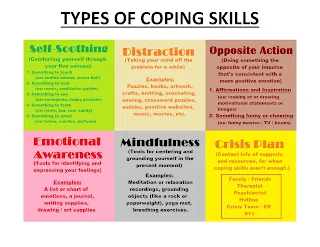Seeking Help at Treatment Centers: Empowering Recovery Through Professional Guidance
Introduction:
When faced with the challenges of disease and mental health disorders, seeking help from treatment centers staffed with professionals can be a life-changing decision. These dedicated facilities provide a nurturing environment where individuals like me, can learn about their conditions, gain valuable insights, and acquire essential coping tools. In this article, we explore the transformative journey of seeking help at treatment centers, highlighting the knowledge gained about one's disease and the invaluable tools learned to foster effective coping strategies.
Understanding the Disease:
One of the most significant advantages of treatment centers is the opportunity to deepen our understanding of the disease or mental health condition we are facing. Professionals at these centers possess extensive expertise in their respective fields, allowing them to shed light on the intricacies of the illness, its causes, and its impact on our lives. Through individual and group therapy sessions, educational workshops, and personalized assessments, we can gain a comprehensive understanding of our disease, empowering us to take charge of our recovery journey.
Learning Coping Strategies:
Treatment centers offer a wide range of evidence-based coping strategies that are tailored to the unique needs of individuals. These strategies go beyond mere symptom management; they equip us with the tools necessary to navigate the challenges associated with our conditions effectively. Therapeutic approaches such as cognitive-behavioral therapy (CBT), dialectical behavior therapy (DBT), mindfulness techniques, and holistic practices provide us with practical methods to cope with triggers, manage stress, regulate emotions, and build resilience.
In addition to therapy, treatment centers often offer workshops and experiential activities that help us explore various coping mechanisms. These may include art therapy, music therapy, and recreational activities like yoga or hiking. Engaging in these activities not only provides a creative outlet but also fosters self-expression, self-discovery, and a sense of empowerment, allowing us to develop healthy coping mechanisms beyond the confines of the treatment center.
Supportive Community:
Treatment centers provide a supportive community where individuals facing similar challenges come together to share experiences, offer encouragement, and provide mutual support. Group therapy sessions and support groups allow us to connect with others who have walked a similar path, creating a sense of belonging and reducing feelings of isolation. The shared experiences within these communities can be incredibly healing, as we learn from others' triumphs and setbacks, gain fresh perspectives, and develop authentic connections.
Additionally, treatment centers often offer aftercare programs or alumni networks, ensuring ongoing support even after the initial treatment period ends. These networks provide a lifeline for individuals transitioning back into daily life, offering continued guidance, relapse prevention strategies, and a platform for ongoing connection with peers who understand the challenges of recovery.
Building a Holistic Approach:
Treatment centers recognize the importance of a holistic approach to recovery, emphasizing the integration of physical, emotional, and spiritual well-being. Professionals in these centers prioritize a comprehensive understanding of an individual's needs, addressing the underlying factors that contribute to the disease. This approach may include nutritional counseling, exercise programs, mindfulness practices, and complementary therapies such as acupuncture or massage. By nurturing all aspects of our well-being, treatment centers help us develop a robust foundation for sustainable recovery.
Conclusion:
Seeking help at treatment centers staffed with professionals is a courageous step toward healing and personal growth. These centers provide invaluable opportunities to understand our diseases, learn effective coping strategies, and build a supportive community. By embracing the knowledge gained and the tools learned during our time at these centers, we become equipped with the tools and resilience necessary to navigate the challenges that lie ahead. Armed with a deeper understanding of our conditions, we can face the future with new-found confidence and optimism. Seeking help at treatment centers is not just about receiving professional guidance, - it is about embarking on a transformative journey of self-discovery, healing, and empowerment. Remember, reaching out for help is a sign of strength, and by doing so, we open ourselves up to a world of possibilities and a brighter, healthier, happy future.








Comments
Definition of "Rock Bottom" is as unique as we are...
Glad you not only identified your "rock bottom" and sought help, but brave enough to share the knowledge you gained from your journey to recovery.
#Mind/Ego - Amazing!